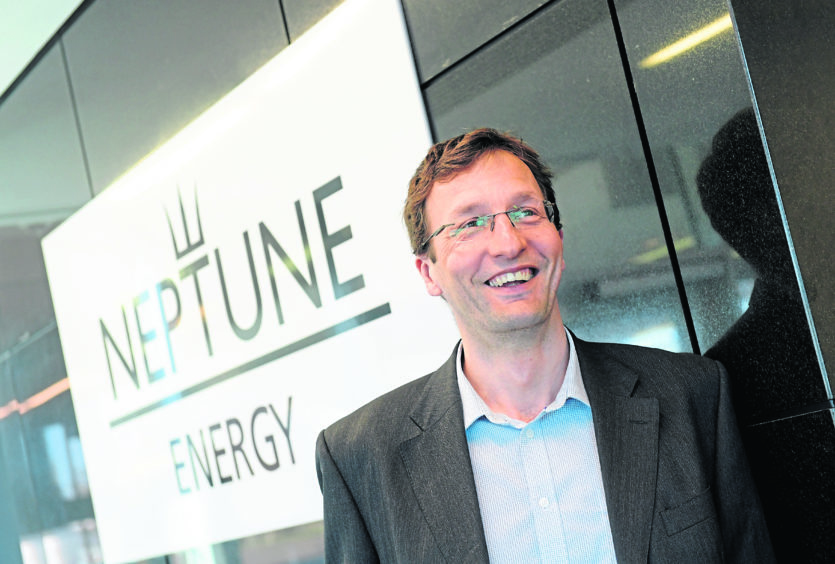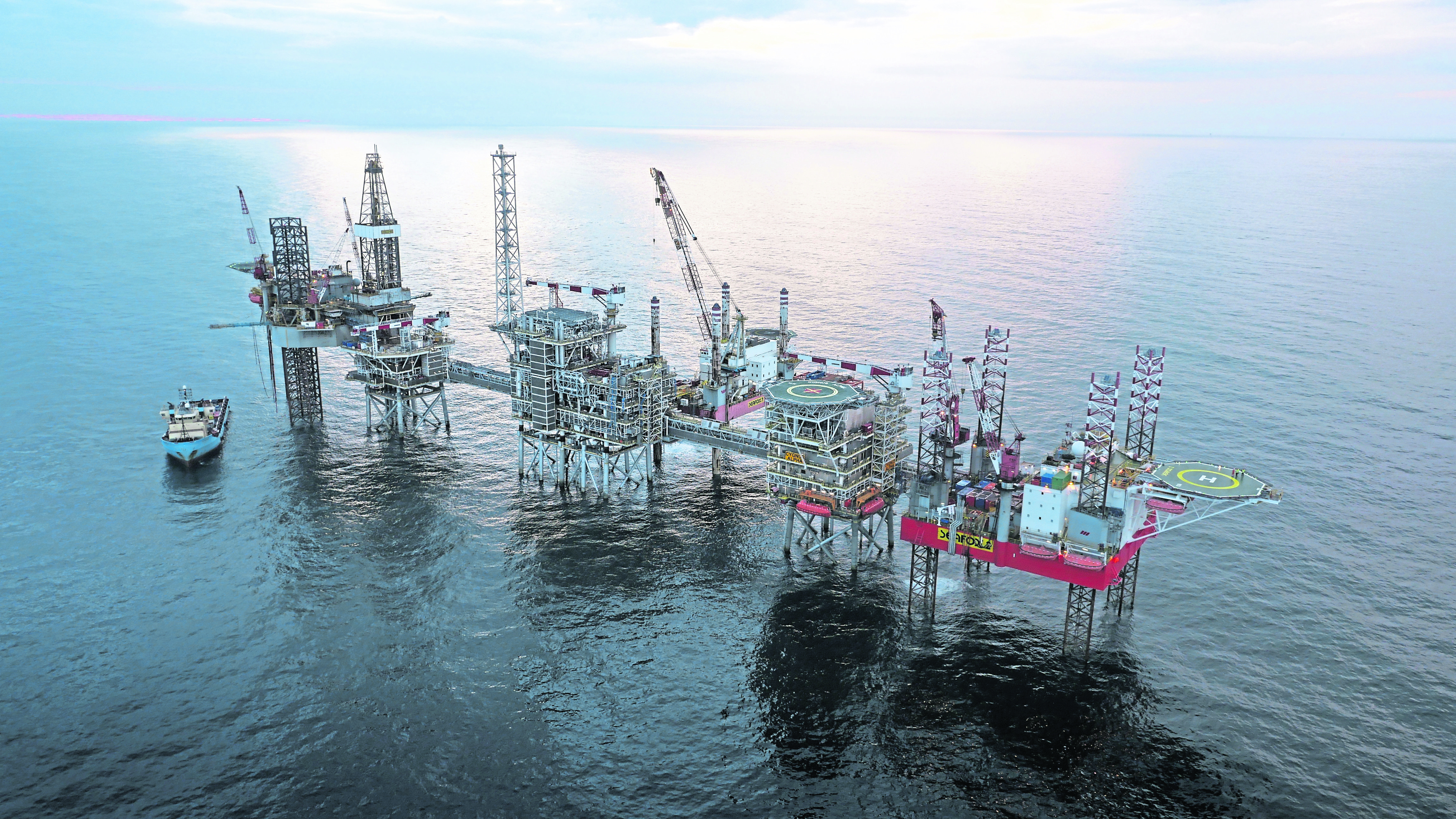
Just because a prized footballer hasn’t been put on the transfer list, it doesn’t mean a rival club can’t put in a cheeky bid.
The same is true of oilfields.
Everyone knows that a number of portfolios are up for grabs in the UK North Sea mergers and acquisitions (M&A) market.
International oil companies – mostly US-headquartered – are looking to exit or shrink their footprints in what is still an expensive basin, despite significant cost improvements being achieved.
Private equity-backed Chrysaor last month struck a deal to buy ConocoPhillips’ North Sea business, after Jim Ratcliffe’s petrochemicals giant Ineos pulled out of the running, while Chevron’s central North Sea portfolio is still up for sale.
But jitters caused by the crude price drop in the fourth quarter are thought to have stymied activity.
That may be the current dynamic, but M&A is always there, always possible.
There is no transfer window and companies can always ask about an asset, even if there is nothing to suggest that the owner is looking to sell.
“You can always talk to people; there are always opportunities to buy and sell,” said Pete Jones, UK managing director of Neptune Energy, which has been busy in the market.
Backed by private-equity firms Carlyle Group and CVC Capital Partners, as well as China’s sovereign wealth fund, Neptune wrapped up the near-£4 billion purchase of Engie’s exploration and production business in February 2018.
The purchase gave Neptune operatorship of the Cygnus field in the southern North Sea.
Neptune completed the acquisition of Norwegian oil and gas producer VNG Norge in September and bought stakes in two UK North Sea fields from Apache for a consideration of £55m.
The deal added 35% of the 50million-barrel Seagull field and 50% of the Isabella prospect to Neptune’s portfolio.
In March, Neptune and partners made a final investment decision to develop Seagull as a tieback to BP’s Etap central processing facility in the central North Sea.
First oil is expected by the end of 2021.
Neptune has made no secret of its desire for further deals.
Speaking after the company revealed pre-tax profits of £686m in 2018, chief executive
Jim House, who joined Neptune after working at Apache for more than 25 years, said the firm had the financial muscle to consider further acquisitions “if the right opportunities come along”.
The company has considerable spending power, having $1 billion (£765m) drawn under a $2bn committed reserve base lending facility, maturing in 2024.
Mr Jones said Neptune’s bosses in the North Sea, North Africa and Asia Pacific were all engaged in the M&A process.
All of the acquisitions have to “join up and add value” he said.
But having looked closely at its portfolio and discovered more oil and gas, the company can afford to take its time and be more “discerning”.
In its full-year 2018 results, Neptune estimated its 2P reserve base to be 638m barrels of oil equivalent (mboe), compared to 555mboe at the end of 2017.
“We are very keen to maintain the quality of our portfolio,” Mr Jones said. “We are selective in that area. We like our mix of gas and low opex assets.
“So we are working on M&A opportunities that would fit, but we are focused on organic growth as well.
“We found that we had more oil and gas in the ground than we thought. That means we don’t need as much inorganic.”
He said companies and investors were still “feeling the scars” of the downturn that set in like a dark cloud at the end of 2014.
But Mr Jones does not believe the mini-slump in the fourth quarter of 2018 should impact anyone’s long-term growth plans.
Neptune, which has about 150 employees in Aberdeen and 80 on Cygnus, knows it can make fields run efficiently, and that’s more important.
The group’s operating costs dropped to $10.20 per barrel last year, but the figure was even lower for Neptune’s UK operations, at $7.
Mr Jones, who has been in the role for about eight months, said the focus provided by Neptune’s management and shareholders had helped get assets ticking along nicely.
Indeed, the strength of the leadership team, including Mr House and executive chairman Sam Laidlaw, a former Centrica chief executive, was one of the biggest selling points when he was offered the job.
Mr Jones, who previously held the managing director role at Taqa, said: “The choice to join was a no-brainer when I saw who was involved.
“There is a strong competence, desire and vision to be a leading independent exploration and production company. It was a case of ‘where do I sign up?’
“The alignment channelled through leadership means we have a lot of focus.
“That has been great in terms of setting out where we want to go and making decisions.”
Mr Jones, who spent most of his 25 years in the sector at Marathon Oil, where he had a spell as UK managing director, said there was a need to reshape mindsets away from the culture of a French utility, Engie, to that of a focused oil and gas company.
It all comes down to communication and two-way engagement.
“The senior leaders are here regularly to talk through their ideas with the teams here,” he said. “It means we can drive value and decisions more effectively.
“You can be sitting upstairs in the meeting room with a drilling engineer talking to an executive chairman who can engage in the issue and is knowledgeable, so it’s a powerful set-up.
“Where else would you get that?”
And the top brass have found plenty of “diamonds” and “pockets of excellence” among the people inherited from Engie, formerly known as GDF Suez.
Mr Jones said: “Engie had this competence in its oil and gas team. It was technically very strong, but under the umbrella of a utility.
“Engie had no real oil and gas representation in its senior leadership team and not the same shareholder drive.
“We have all of those things so people are excited and open. People are coming forward with ideas for projects that can help us grow.
“When you want to make changes and improve things, the answers are nearest the coal face. That’s what we bring – close engagement and people working together.
“You can see that in our results. We’re getting into our stride and will be taking that further in 2019 through exploration and projects, building on our existing footprint.”
Mr Jones feels one of the most powerful ways to show that you are an oil company intent on growth is to get out and explore. Neptune won’t shy away from the challenge.
This year, two exploration wells are planned, including at Isabella, which is considered one of the largest undrilled exploration opportunities in the central North Sea.
Neptune will also participate in the Darach exploration well – operated by One-Dyas – in the southern North Sea.
The company got unlucky with its Fault Block 9 well to the north of Cygnus at the end of last year, but more exploration opportunities are being matured in that area.
As well as success at one of these wells, Mr Jones would welcome a solution to regulatory issues that are hindering production from Cygnus.
Neptune has had to stop or curtail production from Cygnus periodically because of UK pipeline specifications which were established decades ago.
Because its “heating quality” is rated 1.3% below the current threshold, Cygnus gas needs to be blended with gas from other fields before it can be admitted to the National Transmission System (NTS).
But if there is a production outage at another field which exports to the same terminal, it may not be possible to achieve the right mix, so Cygnus exports have to be halted or significantly reduced.
The UK then needs to fill the gap by finding resources elsewhere.
If the UK authorities could make a small amendment to the pipeline entry specifications, Cygnus gas could be exported without needing to be blended.
Mr Jones said the blending snag had a 5-10% impact on production efficiency, which has a negative influence on exploration and investment decisions in the Cygnus area.
He lamented the fact that more attention was being paid to potentially raising the upper end of the threshold, which is linked to freeing up imported LNG, rather than lowering the lower end to accommodate more UKCS gas. He said a positive outcome would provide certainty and unlock the potential for more UK gas to be produced.
Cygnus currently provides about 6% of the UK’s gas production, but Mr Jones is confident that percentage could be doubled, with the right support from government agencies and health and safety regulators.
He added: “If you solve it ‘on the beach’, then the benefits go all the way to the exploration end.”
Recommended for you

